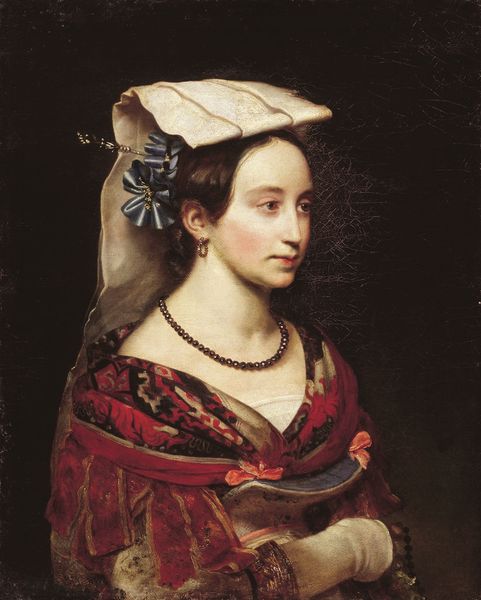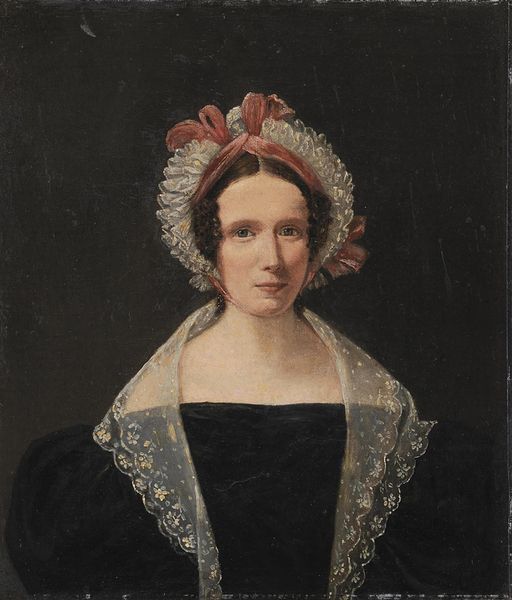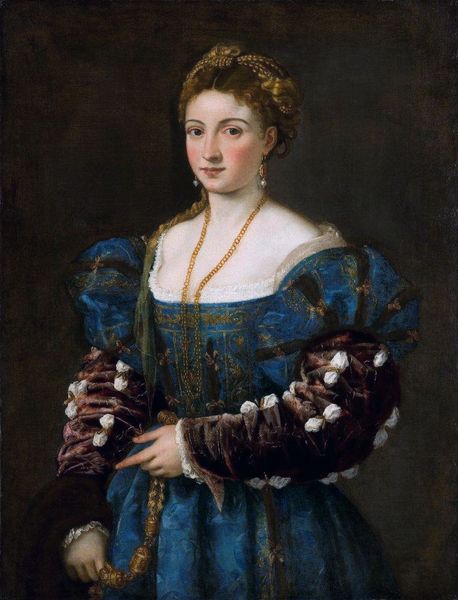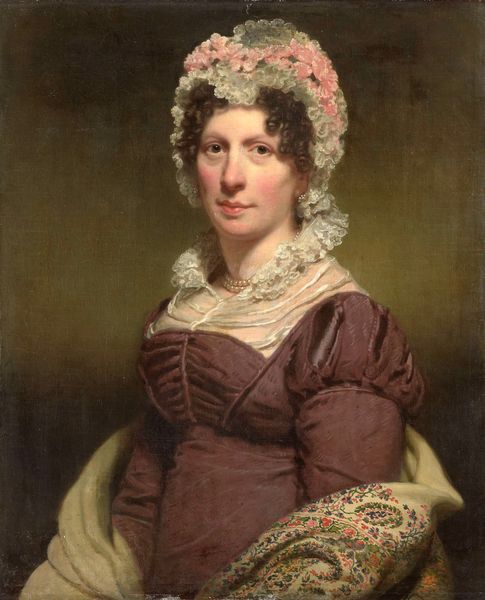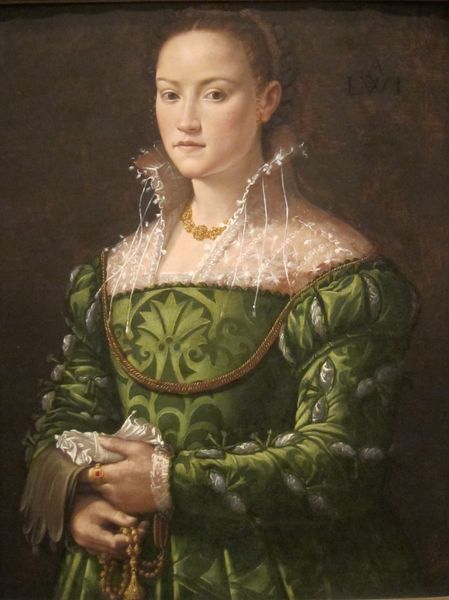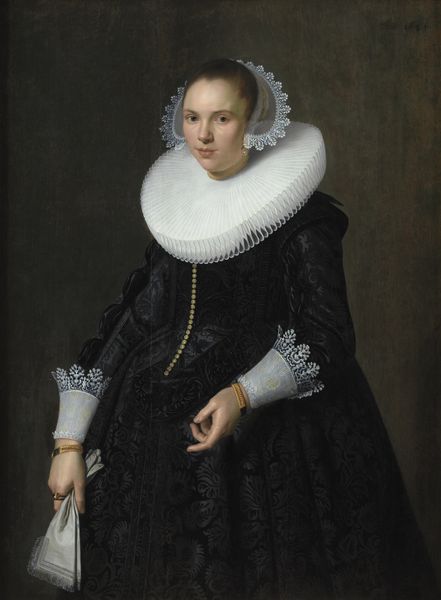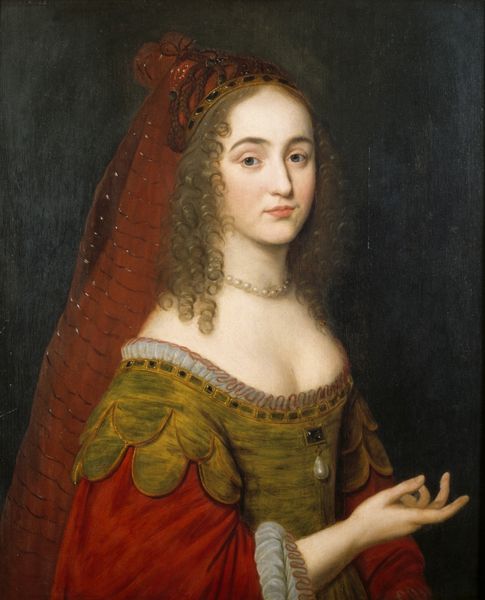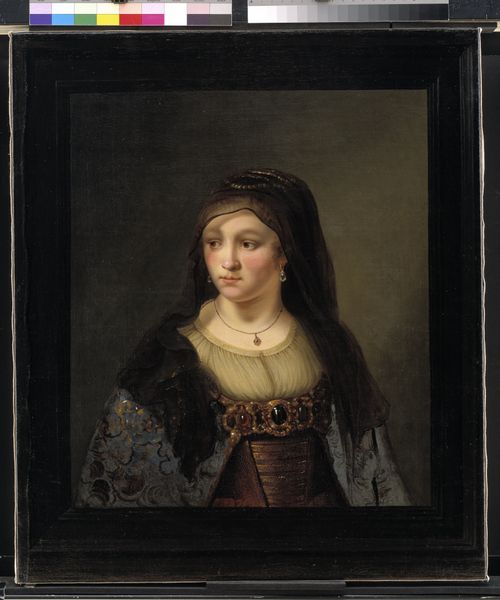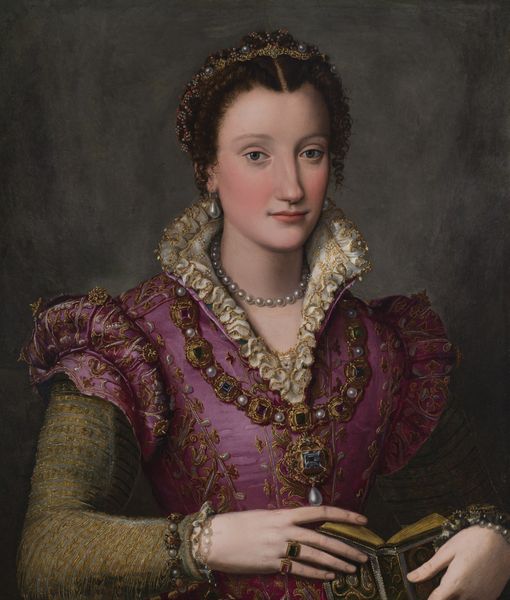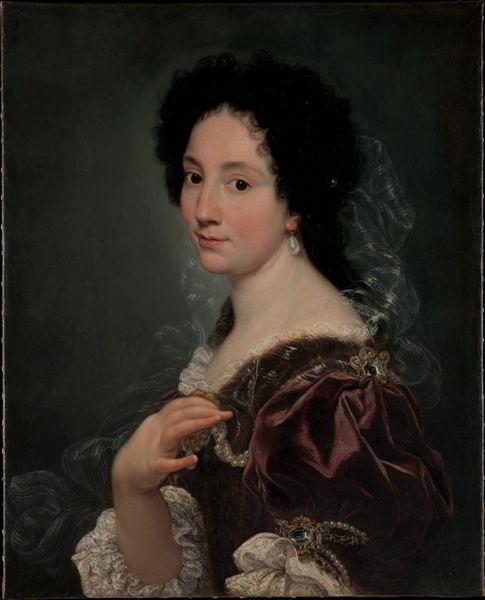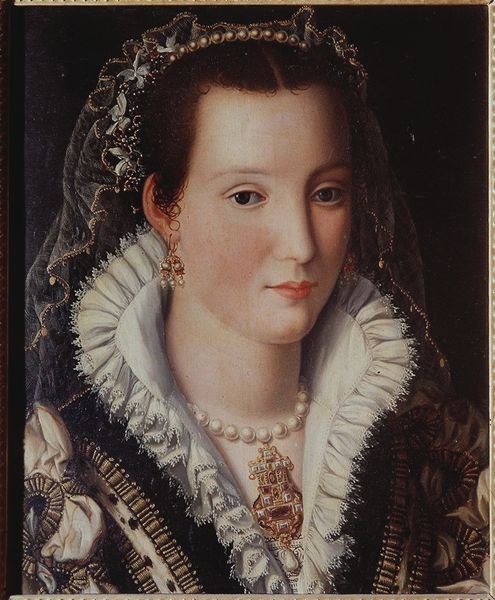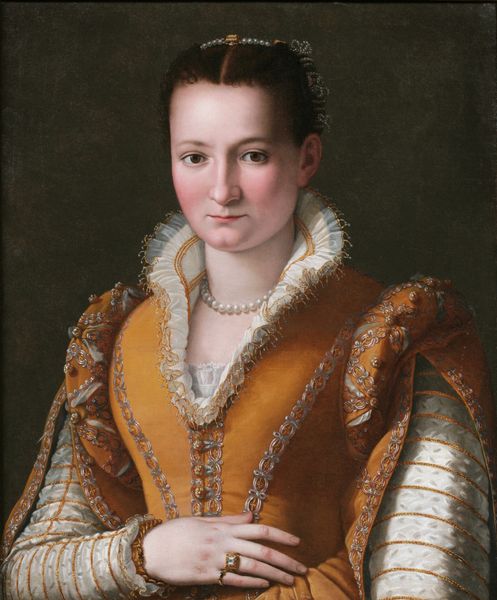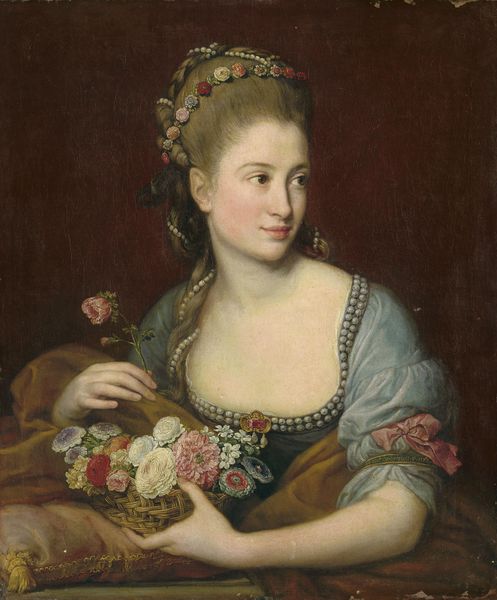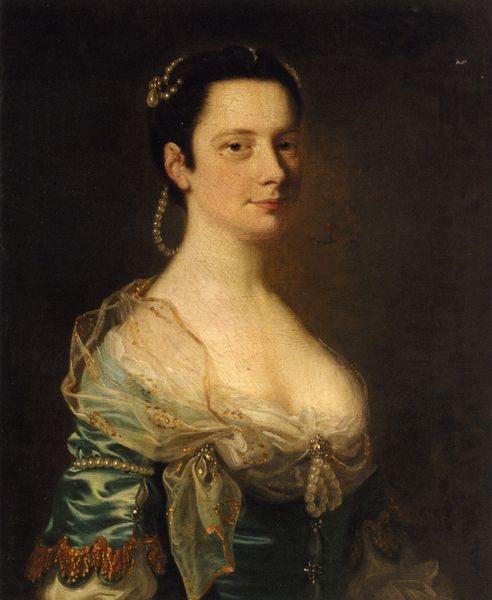
oil-paint, canvas
#
portrait
#
character portrait
#
portrait image
#
oil-paint
#
figuration
#
canvas
#
portrait reference
#
portrait head and shoulder
#
romanticism
#
portrait drawing
#
facial portrait
#
academic-art
#
portrait art
#
fine art portrait
#
celebrity portrait
#
digital portrait
Dimensions: 68 cm (height) x 53 cm (width) (Netto), 85.8 cm (height) x 70.8 cm (width) x 8.7 cm (depth) (Brutto)
C.A. Jensen painted this portrait of his wife, adorned with a turban, in the 19th century. The turban, a headdress historically linked to the East, is here imbued with layers of meaning. Turbans have long been symbols of status, power, and religious identity, yet in the West, they often carried exotic connotations, signifying a fascination with the "Orient." Think of Renaissance paintings, where turbans distinguished biblical figures, or later, their appearance in aristocratic portraiture, suggesting worldly sophistication. Here, the turban perhaps embodies the artist's interest in cultural diversity, transforming his wife into an emblem of worldly allure. Notice the pearls and delicate fabric; these elements invite viewers to engage with the painting on an emotional level, evoking curiosity and projecting cultural fantasies onto the subject. The turban’s appearance here in Jensen's work shows how symbols evolve, transcend, and resurface with shifting cultural values, weaving a non-linear path across art history.
Comments
statensmuseumforkunst about 2 years ago
⋮
To the patriotic art critics of the Golden Age of Danish painting, the internationally-minded style of painting adopted by the portrait painter C.A. Jensen was suspicious due to its use of rapid brushstrokes. The artist left them unfinished on his portraits of common and prominent citizens alike. The style imbued his portrayals with a fleeting quality that ethical gazes might regard as non-committal. The artist's wife The portrait of the artist’s wife, Cathrine, features the same style of painting. However, the model’s appearance is reproduced from a timeless perspective. Cathrine’s right hand in front of her lap and the multi-coloured turban forming a halo around her head are quotations from canonical depictions of women within European art history, specifically from ancient statues of Venus holding her hands to modestly cover her bosom and sex, and the Renaissance painter Raphael’s portrait of his mistress, La Fornarina, wearing a similar turban. An image of love In this way the artist created an image of his love in two ways. He raised the depiction of his wife beyond the specific moment, creating a timeless, placeless image of coveted femininity.
Join the conversation
Join millions of artists and users on Artera today and experience the ultimate creative platform.
